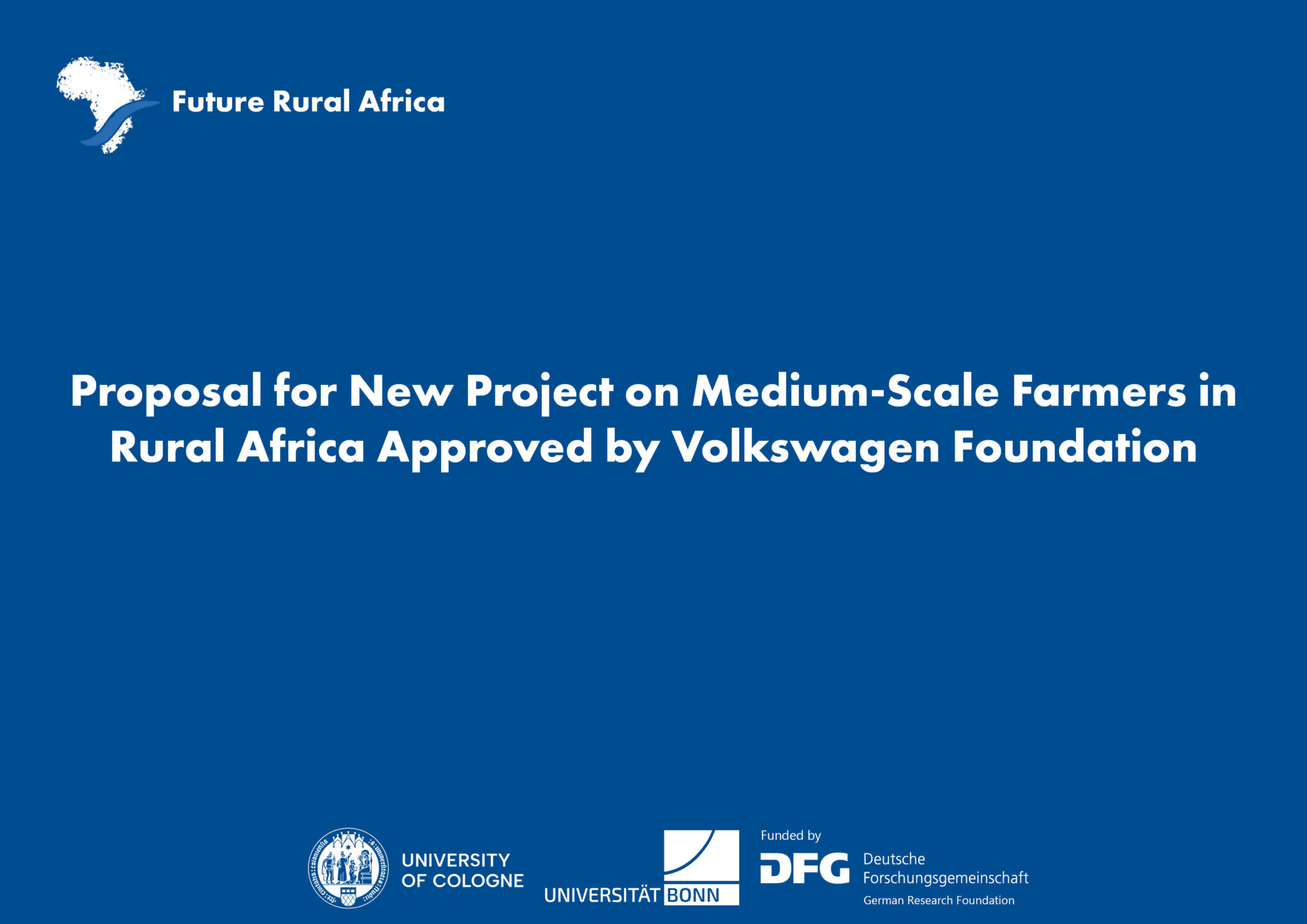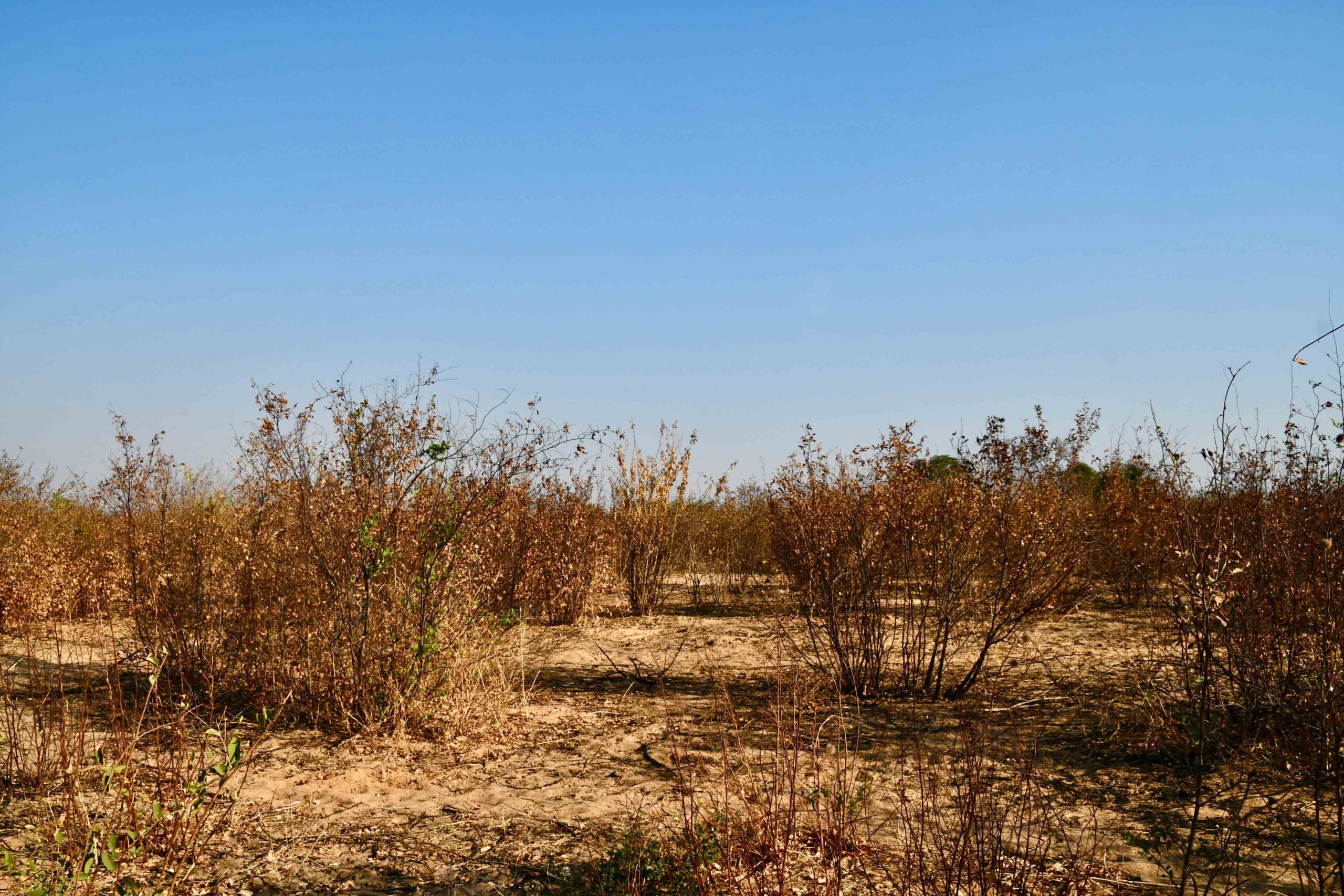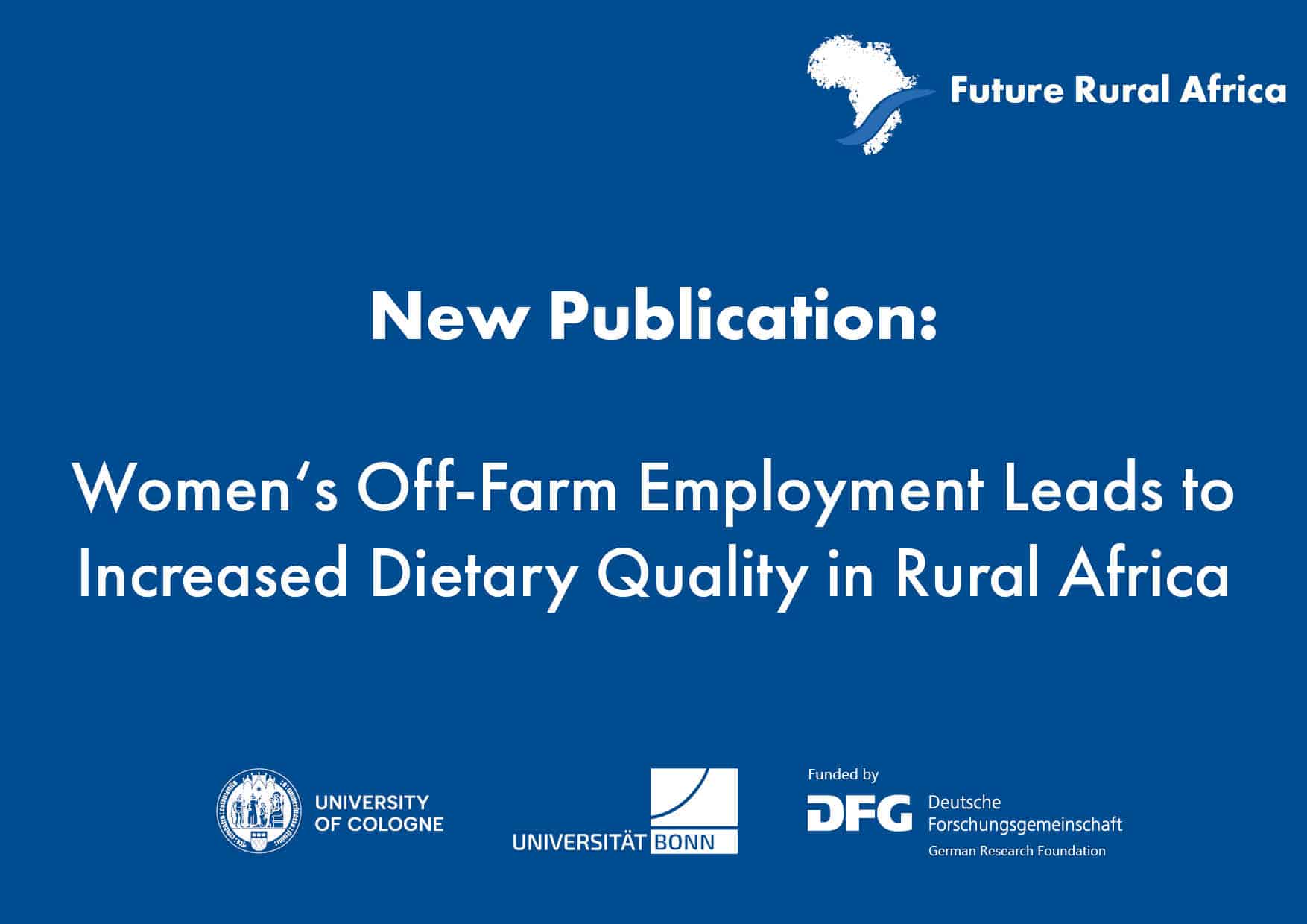Volkswagen Foundation recently approved the project proposal “Medium-Scale Farmers in Rural Africa: Transformations in Belonging, Property, Kinship and Power“ in the funding line “Perspectives on Wealth: Repercussions of Wealth.“ The new project directly builds on research undertaken in the CRC-TRR Future Rural Africa and will feature Future Rural Africa Speaker Michael Bollig (Project A04 Future Conservation) and researcher Clemens Greiner (Project C02 Energy Futures) as Principal Investigators. They will be joined in the project by Ruth Hall (PLAAS, University of the Western Cape, South Africa), Emmanuel Sulle (Aga Khan University, Arusha Climate and Environmental Research Centre, Tanzania) and Kojo Amanor (University of Ghana).
Project Description
A dramatic new phenomenon has been taking shape in rural Africa over the past two decades: the rise of medium-scale commercial farms. Within African landscapes, medium-scale farmers represent a new type of economic actor—domestic entrepreneurs, mostly men, who enter agriculture often using capital accumulated elsewhere.
The academic literature is divided on the implications of this trend, debating whether it drives economic dynamism and inclusion or contributes to inequality, exclusion, and conflict. We aim to contribute to this debate by investigating the repercussions of medium-scale farmers’ investments on accumulation, wealth, and impoverishment in the rural landscapes and agrarian economies of Namibia, Ghana, and Tanzania. This is achieved through a combination of anthropological and political economy approaches.
Our focus is on the agency of these farmers, their strategies for accumulation, and their impact on the agrarian economy and smallholder production. We examine four sets of variables that shape the context of their actions:
- Local politics of state and traditional authorities mediating access to resources.
- Translocality, belonging, and changing patterns of urban and rural economic and social life.
- Agri-food value chains, employment, and local economies.
- Kinship, gender relations, and intergenerational inheritance.






